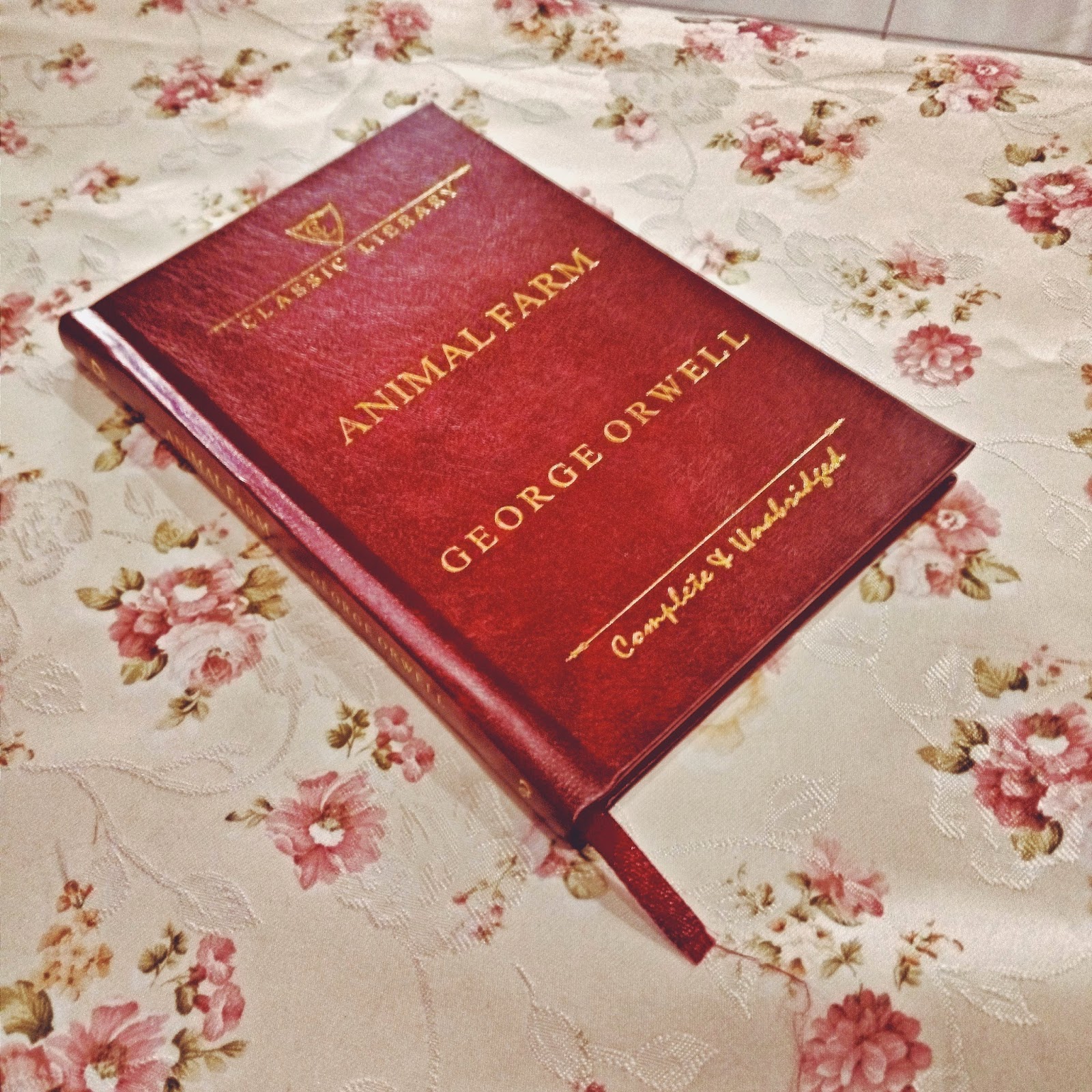This is hands down one of the best books I have ever read! It is knowingly funny, deceptively simple, and deftly ridiculing the hypocrisies and twisted logics of Communism (or any known society is more like it). For a simple tale, it makes me think a lot! It speaks to me and holds timeless truths. For example, Orwell wrote this to satire the Stalinism / Communism in Russia, but whoever read this book presently still can see clearly the parallel between Animal Farm and the modern society. The leaders said one thing today and contradicted it the next day. Then there are the people who blindly followed the so called leaders, putting their faith on them, only to be betrayed by these people, such as in the case of Boxer. Then there is people as represented by Benjamin, who despite possessing the knowledge and noticing things, refused to actively participate because deep down, he already sensed the unpleasant outcome.
“Life will go on as it has always gone on—that is, badly”, he said.
After the rebellion, the animals put up seven commandments on the barn wall as the rules of their newly established society. Yet over time, the rules are amended to the advantage of the pigs until one rule emerged, the now famous:
“All animals are equal; some animals are more equals than others”
And then there is the slogan that is constantly shouted by the goats “Four legs good, two legs bad” that changed to “four legs good, two legs better” once the pigs have mastered the skill to walk with two legs. I remember I laughed hard when I read that despite not wanting to because I was extremely disgusted by the pigs behaviour. The diversion from one major issue to a minor one by a skilled manipulator as depicted by Squealer hit too close to home I felt uncomfortable. Orwell’s observation on human behaviour and condition is sadly true and it can be observed on every level of human interactions no matter the classes.
When I read the last word from the last page, I was left with sadness and awe. I’d hope for things to turn out differently, that maybe the animals will find their courage and strength to fight for their rights and subsequently establish an ideal society. Instead, all I got is this:
“Twelve voices were shouting in anger, and they were all alike. No question, now, what had happened to the faces of the pigs. The creatures outside looked from pig to man, and from man to pig, and from pig to man again; but already it was impossible to say which was which.”













.png)
